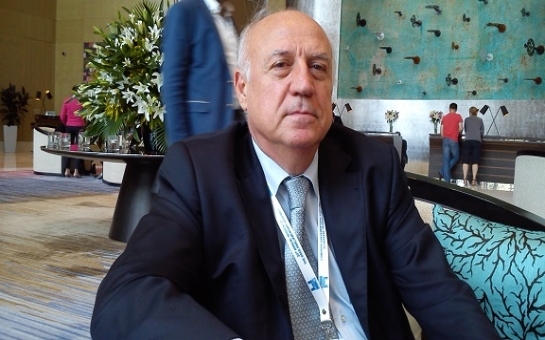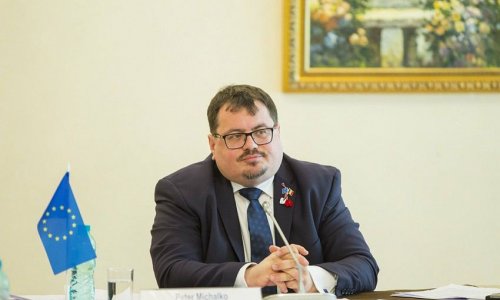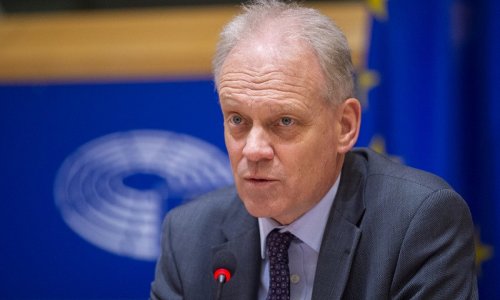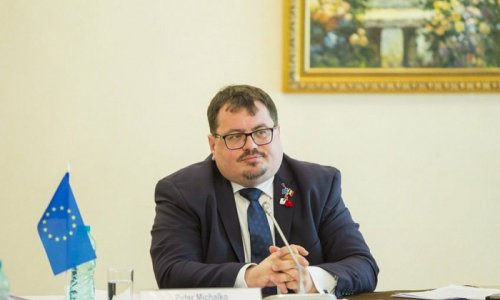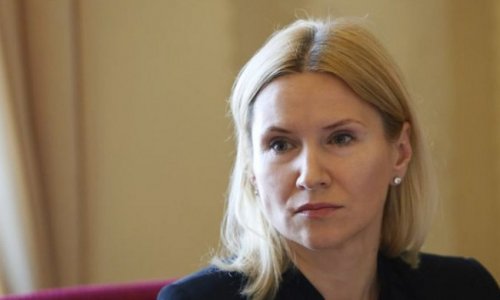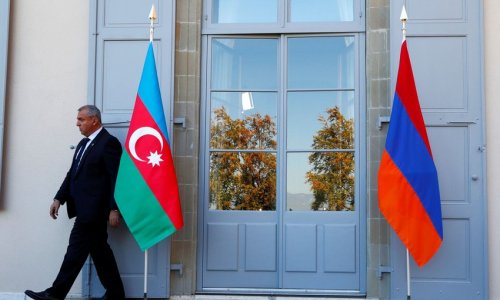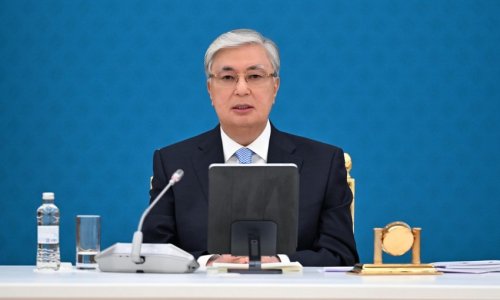ANN’s Kamal Ali has interviewed Artashes Gegamyan, a member of the Armenian delegation at the OSCE Parliamentary Assembly (OSCE PA). Gegamyan is attending an OSCE PA session in Baku.
- What do like or dislike in Baku?
- We flew to Baku from Tbilisi. Unfortunately, there is no direct flight between Baku and Yerevan. I had visited Baku 14 times before 1988. It is my 15th visit. I studied at the regional party school in Baku while serving as the first secretary of Yerevan’s Mashtokskiy district. We often visited Baku before 1988, and your friends visited Yerevan. To me, it is difficult to compare today’s Baku with the city I saw before 1988. Because of the busy schedule at the OSCE PA session, I haven’t had the chance to go out and see the city. I have only seen Baku through the windows of a bus. I cannot say anything about your city before I get the chance to talk to Baku residents. You are the second Baku resident I have talked to. The organizers of the session have done an excellent job. You can feel the Caucasian hospitality.
- While in Yerevan, you said it was important to ensure the security of members of the Armenian delegation. Do you feel safe here?
- We are leaving Baku on July 2. I will answer this question when I get back to Yerevan. There is a saying in Armenia: May the feeling you have on arrival come back to you as a boomerang. So, I am calm in this respect.
- A difficult situation has emerged in Armenia in connection with your country’s joining the Eurasian Economic Union and the economic boundary between Armenia and Nagorno-Karabakh. What can you say about that?
- There is no difficult situation in Armenia, although some people may want to see it emerge. There is a normal and working situation in Armenia. The main problem with the unification of Armenia’s main laws with those of the member states of the Eurasian Economic Union (Russia, Kazakhstan and Belarus) has been resolved. There are some other issues requiring agreements between Armenia and the founders of the Eurasian Union.
Armenia has always said that Nagorno-Karabakh is a de-facto sovereign country. That means, Armenia cannot make decisions for Nagorno-Karabakh. Being a member of the World Trade Organization, Armenia has resolved all these issues. It was said from the beginning that no requirements of the Eurasian Union WTO should go against those of the WTO. All details will be discussed so that justice is done and, as (Kazakh President) Nursultan Nazarbayev said, “our Azerbaijani friends” are not offended.
I think it is clear for everybody. If Azerbaijan is ready to ensure Nagorno-Karabakh’s security and open its borders with the region, that will require additional talks. Therefore, Azerbaijan leaves the Nagorno-Karabakhi authorities no room for maneuvering or choice by refusing to provide such guarantees and by maintaining the blockade.
- It is because Azerbaijan does not recognize the so-called Nagorno-Karabakh republic and its authorities, isn’t it?
- That shows the need for our leaders, along with the co-chairs of the OSCE Minsk Group, to come to compromise on the basis of the main principles that were mentioned in five statements made by the French, Russian and US presidents. Our president has repeatedly said he was ready to start more focused negotiations on the basis of the statements by the US, Russian and French presidents.
- Are you talking about the Madrid principles?
- Six of those principles were detailed in the statements by the presidents of the countries co-chairing the OSCE Minsk Group. The remaining ones require hard talks. If there is goodwill and the necessary guarantees, I can be optimistic about the future.
- At the OSCE PA session, you had an argument with members of the Ukrainian delegation after you said the people of Crimea had the right to self-determination.
- Our Ukrainian friends and colleagues were not listening to me carefully. I was talking about the Crimean people’s right to self-determination, and then they started talking about the percentage of Ukrainians, Russian and Tatars in Crimea. The right to self-determination has been enshrined in paragraph 2 of the Helsinki Final Act. I don’t understand why the Ukrainians reacted to my speech the way they did. As an old saying goes, “Platon is my friend, but the truth is dearer to me.”
- You didn’t mention the principle of territorial integrity of countries.
- That’s absolutely right. There are 10 principles. All the principles of the Helsinki Final Act have the same weight and they need to be enforced at the same time without choosing one of them over another. You have to ensure the security of the local population. How are you going to balance all of these? There needs to be talks to hammer these out.
Let’s take Europe as an example. The French city of Strasbourg used to be part of Germany’s Elsa territory. Now Strasbourg is the second capital of Europe. I have asked Strasbourg residents many times about that, and they replied that they had the same attitude to Germany, France and all countries of the European Union. Azerbaijan, Armenia and the republic of Nagorno-Karabakh can take Strasbourg’s example by joining the Eurasian Economic Union. If the borders reopen, residents of Armenia, Azerbaijan and Nagorno-Karabakh could freely move around the region. Trade and humanitarian ties would expand. It would help make sure that residents of both Armenia and Azerbaijan feel okay in Nagorno-Karabakh and residents of Nagorno-Karabakh feel in comfort in Azerbaijan and Armenia. We have to understand that no one is going to take this land with him after passing away. We have to have the wisdom and foresight to show to the future generations that we have brought peace to the long-suffering region. This land has seen many wars. We want peace and prosperity, which our peoples deserve.
Bakudaily.az

